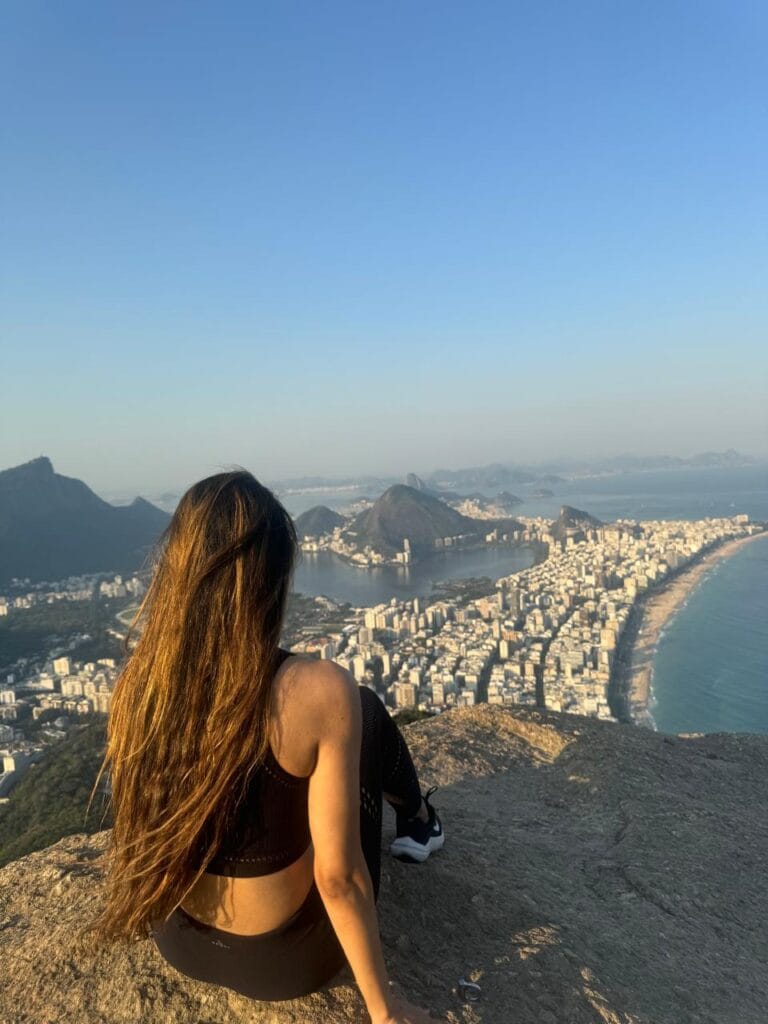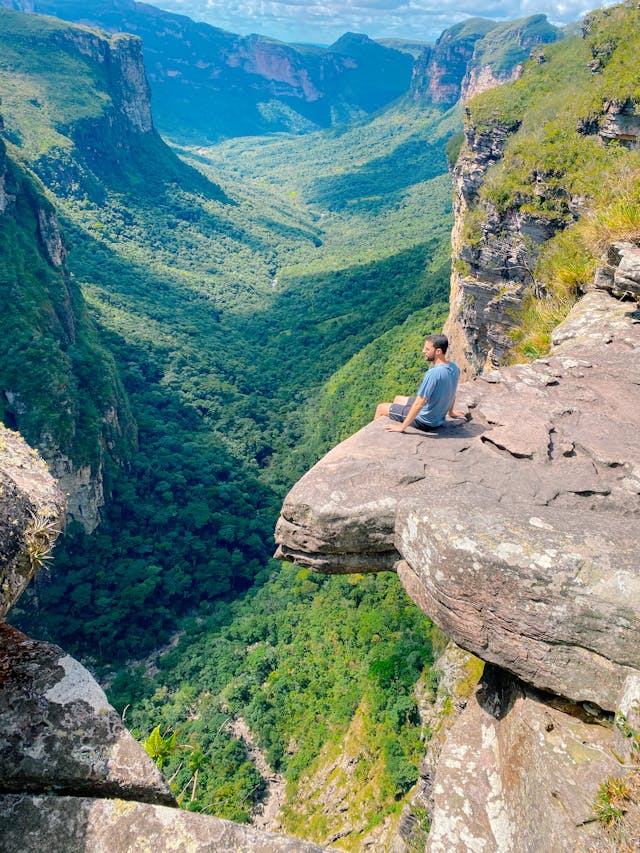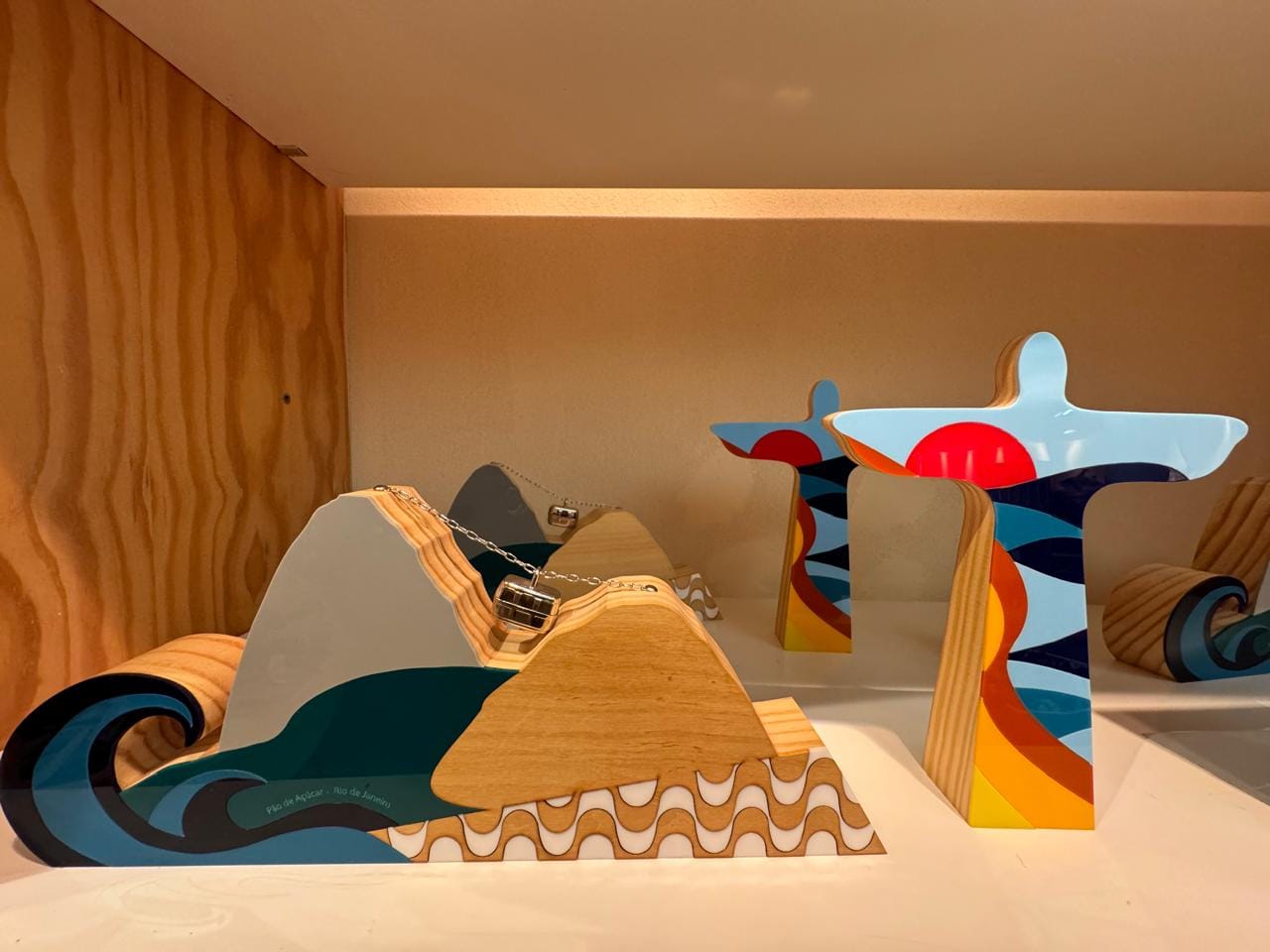
Planning a trip to Brazil? This lively and diverse country offers breathtaking landscapes, rich culture, and warm hospitality.
Whether you’re exploring the bustling streets of Rio de Janeiro, marveling at the Amazon rainforest, or relaxing on the beaches of Bahia, these essential tips to travel to Brazil will help you make the most of your adventure.
Sign up Now for the Best Travel Tips exploring Brazil!
Get expert travel tips, detailed itineraries, and insider recommendations for your trip.
Brazil is an enormous country, filled with diverse destinations and unique experiences. Planning ahead is essential to make the most of your visit, and it is one of the essential tips to travel to Brazil. Here are some tips to help you create the best itinerary:
- Understand What You Want to Experience: Decide on the type of trip you’re looking for:
- Beaches: Brazil is famous for its stunning coastlines. Visit Rio de Janeiro’s Copacabana and Ipanema, the pristine beaches of Fernando de Noronha, or the natural beauty of Praia do Espelho in Bahia.
- Cultural Exploration: Cities like Salvador, Ouro Preto, and São Luís offer rich history, colonial architecture, and vibrant cultural experiences.
- Wildlife and Nature: Explore the Amazon rainforest, the Pantanal wetlands for wildlife spotting, or the breathtaking Iguazu Falls.
- Adventure: Head to Chapada Diamantina for hiking, or Bonito for snorkeling and eco-tourism.
- Research Popular and Hidden Gems:
- Popular destinations like Rio de Janeiro, São Paulo, and Salvador are must-sees for first-time visitors.
- Lesser-known but equally amazing places include Jericoacoara, a remote beach town perfect for kitesurfing, or the Serra Gaúcha region, known for its vineyards and European charm.
- Create a Realistic Itinerary:
- Due to Brazil’s vast size, it’s difficult to see everything in one trip unless you plan to stay for several months.
- Focus on one, two or three regions to avoid spending too much time traveling between destinations.
- Use tools like Google Maps or travel forums to estimate travel times and plan logistics.
- Consider Transportation:
- Domestic flights are the best option for covering large distances, such as from the Amazon to Rio de Janeiro.
- For shorter distances, buses or rental cars may be more practical and allow for scenic exploration.
- Be Flexible:
- While planning is crucial, leave some room for spontaneous discoveries. Many travelers fall in love with lesser-known towns and decide to extend their stay.
- Book Accommodations and Tours in Advance:
- Popular destinations and tours, especially in high season, can sell out quickly. Booking ahead ensures you won’t miss out.
👉 For accommodations, check Hoteis.com for great hotel deals or Hostelworld if you’re traveling on a budget. And for activities, GetYourGuide offers reliable tours with easy online booking.

2. Understand the Visa Requirements
Before packing your bags, check if you need a visa to enter Brazil.
Travelers from the United States, Australia, and Canada need a visa to enter Brazil. However, most Europeans, South Americans, and Japanese citizens do not require a visa. Head here to see if you need a Brazil travel visa.
For those who need a visa, it is necessary:
- A valid passport.
- A valid Brazilian visa or e-visa.
- If you are from the United States, Australia, or Canada, visit the Brazilian government-authorized website to obtain your e-visa here. If you are from another country that requires a visa, visit a Brazilian consular post in your country to obtain the visa, following the instructions provided by the Brazilian government here.
3. Update Your Vaccinations
In Brazil, proof of vaccination is not mandatory for entry into the country. However, the Ministry of Health recommends that international tourists update their vaccination status prior to arriving in Brazil, following the guidelines of their country of origin or residence.
Key vaccines include yellow fever, polio, measles, rubella, diphtheria, and tetanus.
Though the yellow fever vaccine is not required to enter Brazil, travelers wishing to be vaccinated should consider receiving it prior to travel. Please note that the yellow fever vaccine should be administered ten days prior to travel for it to be effective.
Also note that, while yellow fever vaccine is not required to enter Brazil, some neighboring countries (French Guiana, Suriname, Guyana, Bolivia, and Paraguay) do require travelers with recent entries in Brazil to show proof of yellow fever vaccination.
All travelers to the country are advised to carry documentation, such as a vaccination card, that they have been appropriately vaccinated for yellow fever.
Additionally, Brazil has reported measles outbreaks in some states. As it is a potentially severe and highly transmissible disease, it is crucial for tourists to update their measles vaccination status before traveling to Brazil.
Click here for more information about vaccination requirements for entering Brazil.

4. Learn Basic Portuguese Words
Learning basic Portuguese is helpful and can make your interactions more enjoyable. While many Brazilians will try to assist you even if you don’t speak the language, knowing a few key phrases or slang words can go a long way:
- Basic Phrases:
- “Tudo bem?” (How’s it going?) – A common and versatile greeting used to ask how someone is doing.
- “Por favor” (Please) and “Obrigado/Obrigada” (Thank you – masculine/feminine) are essential polite expressions.
- “Quanto custa?” (How much does it cost?) – Useful for shopping or dining.
- “Onde fica…?” (Where is…?) – Handy for asking directions.
- Common Slang:
- “Valeu!” (Thanks!) – An informal way to express gratitude.
- “Beleza?” (All good?) – A casual way to check in with someone.
- “Tranquilo” (No problem/Relax) – Used to reassure or express ease.
The Importance of Learning Basic Portuguese:
Making an effort to communicate in Portuguese, even if only with simple words, often earns smiles and appreciation from locals. It helps bridge cultural gaps and can make navigating the country smoother.
For instance, if you’re in a small town where English is rarely spoken, these basic phrases can be invaluable.
Using Online Translators:
If you’re not confident in your Portuguese skills, don’t worry. Apps like Google Translate can help you communicate effectively. Many of these tools offer voice-to-text and camera translation features, which are particularly useful for reading menus, signs, or maps.
5. Check If You’ll Need an Adapter for Brazil

In Brazil, the standard voltage is 127V or 220V, depending on the region, with a frequency of 60Hz. It is important to check the voltage at your destination to ensure compatibility with your devices. The outlets are mostly Type N, which is specific to Brazil, and less commonly, Type C.
- Type N: Features three round pins, with the middle pin for grounding. It is similar to Type B but with smaller spacing between pins.
- Type C: Two round pins, commonly used in Europe, may also fit Type N outlets without grounding.
Voltage in Hotels and Apartments:
- In most hotels and rental apartments, the majority of outlets are 127V. However, certain outlets, particularly in bathrooms and kitchens, are 220V.
- These specific outlets are usually labeled with a warning indicating their voltage to avoid confusion or damage to your devices.
If your devices have a different plug type, it’s recommended to bring a universal adapter to ensure compatibility. Visitors from countries like the United States, where Type A (two flat pins) and Type B (three flat pins) are used, will need an adapter.
Many universal adapters also include voltage conversion, which can be useful if your devices aren’t dual-voltage.
Tips:
- Check your electronics for dual-voltage support (e.g., 110-240V). If they aren’t dual-voltage, a voltage converter may be necessary.
- Universal adapters are widely available online or at travel stores.
- Hotels and airports in Brazil often have adapters or converters for guest use, but availability isn’t guaranteed.
- Always double-check the voltage of an outlet before plugging in your device, especially in kitchens and bathrooms.
6. Pack Smartly
Brazil’s climate varies significantly by region, so researching the weather for your destination is essential to pack appropriately. While much of the country is warm and tropical, there are important regional differences to consider:
- Northern and Northeastern Brazil: Expect hot and humid conditions, especially in the Amazon and coastal regions. Lightweight, breathable clothing is a must. For the Amazon, long-sleeved shirts and pants are also recommended to protect against insects.
- Southeastern Brazil: Cities like Rio de Janeiro and São Paulo have mild to hot weather, but evenings can be cooler during the winter months (June to August). A light jacket may come in handy.
- Southern Brazil: Regions like Paraná, Santa Catarina, and Rio Grande do Sul can experience cold winters, with temperatures occasionally dropping below freezing. If traveling during the winter, pack warm clothing, such as sweaters and coats.
Additional Packing Tips:
- Footwear: Comfortable walking shoes are essential, especially for urban exploration or hiking trips.
- Sun Protection: Sunscreen, sunglasses, and a hat are vital to shield yourself from Brazil’s strong sun.
- Insect Repellent: A must-have for tropical regions and the Amazon.
- Reusable Water Bottle: Staying hydrated is important, and a reusable bottle is eco-friendly.
- Rain Gear: Many parts of Brazil experience sudden rain showers, so pack a lightweight raincoat or umbrella.
- Adapters and Power Banks: Brazil uses 220V outlets, and the plug type varies. A universal adapter and a power bank will keep your devices charged.
- Swimwear and Towels: Beaches and waterfalls are common attractions, so bringing appropriate gear is a good idea.
- First Aid Kit: Include basic medications like pain relievers, antihistamines, and motion sickness remedies.
Click here for a comprehensive Brazil Packing List.
7. Be Prepared for Payment Methods
Brazil’s official currency is the Brazilian Real (BRL), and it is the only currency accepted for transactions. While US dollars are not used for commercial exchanges, Brazil operates predominantly as a cashless society.
Credit and debit cards are widely accepted, even by street vendors and small businesses. However, it is still advisable to carry some cash for situations where cards might not be accepted, such as mototaxis in certain areas or small rural establishments.
Using ATMs and Safety Tips:
ATMs are readily available in most locations, including banks, shopping malls, airports, metro stations, and supermarkets. For added security, it is best to withdraw money in enclosed areas such as these, rather than at standalone ATMs on the streets.
Many travelers find that exchanging money in Brazil provides better rates than doing so abroad, making it a cost-effective choice for visitors.
Credit Card Usage in Brazil:
The most commonly accepted credit card brands in Brazil are Visa and Mastercard. While other cards, like American Express (AMEX), are also accepted, they may not be usable in smaller cities or at smaller establishments.
Major hotels and high-end retailers typically accept AMEX without issue. Travelers recommend carrying a Visa or Mastercard as a reliable option for most transactions.
Tips for European Cards and Fees:
For tourists using European cards like Revolut, the Bradesco bank is often recommended as it generally does not charge additional fees for withdrawals.
Many users have successfully used their Revolut cards in Brazil without any issues. If a transaction fails, it is likely a temporary issue with the ATM.

8. Stay Safe During Your Visit
Brazil is a beautiful country, but safety should always be a priority. While most visits are trouble-free, taking precautions can ensure a secure and enjoyable trip. Here are detailed tips to stay safe during your visit:
- Avoid Displaying Valuables in Public: Keep phones, jewelry, and expensive items out of sight when in public spaces. Using your phone on the street can make you a target for theft.
- Don’t Wear Showy Items: Avoid wearing flashy jewelry or accessories like gold necklaces, as these can draw unwanted attention.
- Keep Valuables Secure: Don’t leave belongings unattended, whether at a café, park, or beach. When sunbathing on the beach, be especially cautious of your personal items.
- Use a Safe for Important Documents: Leave your passport in a safe place, such as your hotel’s safe, and carry photocopies or digital versions instead.
- Bring Minimal Items for Parties: When going out at night, take only the essentials and avoid bringing large bags or extra valuables.
- Leave a Backup Bank Card in Your Suitcase: In case of emergencies, having a spare card securely stored can be a lifesaver.
- Enter Favelas Only with a Guide or Local Resident: While favelas are culturally rich areas, entering without a guide or local resident can be risky. Always go with someone who knows the area well and can ensure your safety.
- Be Cautious with Drugs at Parties: Avoid any involvement with drugs, as possession and use are strictly punished by law and can lead to dangerous situations.
- Stay Safe at Large Events and Festivals: Events like Carnival draw huge crowds, which can make it easier for pickpockets to operate. Keep valuables secured, avoid carrying large sums of money, and stay aware of your surroundings.
Transportation and Accommodation Tips:
- Use Ride-Sharing Apps: Ride-sharing services like Uber are safer and more reliable than hailing taxis on the street.
- Double-Check Accommodation Locations: Research the safety of the area where you plan to stay. Avoid booking places in high-crime or poorly lit neighborhoods.
- Avoid Deserted Areas: Whether walking or driving, steer clear of isolated streets, especially at night.
Blend In and Avoid Standing Out:
- Practice Discretion: Try not to draw attention to yourself as a tourist. Blend in by dressing casually and avoiding overly conspicuous behavior.
- Be Cautious in Tourist Areas: Popular destinations can be hotspots for pickpocketing. Always stay aware of your surroundings and secure your belongings.
General Safety Tips:
- Don’t Walk Alone at Night: Whenever possible, travel in groups or use a ride-sharing service after dark.
- Keep an Eye on Your Pockets: Avoid putting valuables in your pockets. Use a crossbody bag or a money belt to secure items.
- Party Safely: Enjoy Brazil’s nightlife responsibly. Know your limits, stay with trusted companions, and monitor your drinks to avoid tampering.
Urban vs. Rural Safety:
- Greater Caution in Urban Centers: Larger cities like Rio de Janeiro, São Paulo, and Salvador require extra vigilance due to higher crime rates in some areas. Crowded spaces and public transportation hubs often demand greater awareness.
- Tranquility in Smaller Towns: Smaller cities and rural regions generally have a more relaxed atmosphere. Depending on the region, they can be safer and less stressful to navigate. However, it is still advisable to remain cautious and informed about local conditions.
9. Avoid Common Tourist Scams
While Brazil is a fantastic destination, it’s essential to be aware of potential scams that target tourists. By staying informed and vigilant, you can avoid unnecessary stress and enjoy your trip safely. Here are some tips to protect yourself:
- Beware of Fake Tour Guides: In tourist hotspots, you might encounter individuals posing as tour guides who offer overpriced or low-quality services. Always book tours through reputable companies or verify recommendations with your accommodation or trusted sources.
- Overpriced Tours: Compare prices before booking any tour or activity, and read online reviews to ensure you’re getting a fair deal.
- Currency Exchange Precautions: Only exchange currency at authorized locations like banks, exchange bureaus, or ATMs. Avoid street exchangers who may offer attractive rates but often deal in counterfeit currency.
- Be Wary of “Free” Offers: Scammers near famous landmarks may offer “free” photos or souvenirs, only to demand payment afterward. Politely decline such offers to avoid confrontations.
- Pickpocketing and Distractions: Be cautious in crowded places like markets, festivals, or public transportation. Scammers may use distractions such as spills or “helpful” strangers to target your belongings.
- Taxi Scams: If using a traditional taxi service, ensure the driver uses the meter or agree on a fare before starting your trip. Alternatively, rely on ride-sharing apps like Uber for more transparent pricing.
- Street Performers and Beggars: While many street performers are genuine, some may pressure tourists for money after seemingly “free” performances. Keep small change on hand if you wish to tip, but don’t feel obligated.
10. Embrace Brazilian Culture

Brazilian culture is a unique blend of indigenous, African, and European influences, resulting in a warm, diverse, and welcoming atmosphere. Here are some insights to help you better understand and embrace the culture during your visit:
- Bar Etiquette: Unlike in some countries, you’ll often receive an individual tab (comanda) at bars in Brazil, where you consume and pay at the end.
- Punctuality: We Brazilians are famously relaxed about time. If someone says they are “on their way,” it might mean they’ll arrive in an hour or more. Events scheduled for a specific time, like 3:00 PM, often start later, so don’t feel pressured to arrive exactly on time.
- Greetings: We are affectionate and friendly. It’s common to greet with kisses on the cheek: one in São Paulo, two in Rio, and even three in some regions. Hugging and physical touch are also normal forms of greeting.
- Hospitality: We are incredibly hospitable. We often go out of their way to make visitors feel welcome, introducing them to our family and friends and ensuring they feel included.
- Public Displays of Affection: It’s not uncommon to see couples being affectionate in public or friends hugging warmly when they meet. This is considered normal and reflects the open and expressive nature of Brazilian people.
- Shopping Culture: Store attendants may approach you as soon as you enter a shop, ready to assist. While this may seem intrusive to some, it’s a standard practice in Brazil and not meant to cause discomfort.
- Language: While English is the most popular second language, it’s not widely spoken outside tourist areas. Don’t worry if there’s a language barrier; we are creative communicators and will try their best to understand and help.
- Hygiene and Cleanliness: We prioritize personal hygiene. Many brush their teeth after every meal, take daily showers, and use napkins when eating. This emphasis on cleanliness is a point of pride.
- Celebrations and Parties: Birthdays and events in Brazil are lively, inclusive affairs. Unlike in more reserved cultures, parties often include extended family, friends, colleagues, and even neighbors. Expect music, dancing, and festivities that can last until the early hours of the morning.
- Diversity: Brazil’s vast size and history result in remarkable regional diversity. From German and Italian influences in the south to African heritage in the northeast, each state has unique traditions, food, and culture to explore.
- “Jeitinho Brasileiro”: We Brazilians are known for our creativity and resourcefulness in solving problems. This improvisational spirit is a cultural hallmark and often referred to as the “Brazilian way.”
- Sports and Activity: We are active and health-conscious. You’ll often see us playing soccer, running, or cycling at all hours. Sports are deeply ingrained in the culture, not only for fitness but also for social interaction.
- Meals: Lunch is the main meal of the day in Brazil, often consisting of rice, beans, and a protein, served with salad or vegetables.
- The Real Brazil: While samba, Carnival, and soccer are iconic, Brazil is much more than these stereotypes. Its cultural richness, natural beauty, and warm people make it a truly unforgettable destination.
11. Stay Connected
Wi-Fi is widely available in urban areas, including hotels, restaurants, shopping malls, airports, and bus stations. However, relying solely on Wi-Fi may not always be convenient, especially if you’re traveling to remote areas or need consistent access to the internet.
To ensure reliable connectivity, it’s recommended to purchase an eSIM before your trip. This digital option allows you to activate a data plan without needing a physical SIM card, offering convenience and flexibility.
Many providers offer eSIMs that can be set up in advance, so your phone is ready to connect as soon as you arrive in Brazil.
👉 Airalo is a top-rated eSIM provider and a favorite among travelers in Brazil for its ease of use and reliable coverage.
Alternatively, you can purchase a local SIM card once in Brazil. Major Brazilian providers such as TIM, Vivo, and Claro, offer prepaid plans with data packages that can be used by tourists.
These SIM cards are widely available at airports, shopping malls, and authorized stores, however, some foreign travelers have reported difficulties in purchasing SIM cards because a CPF (Brazilian Individual Taxpayer Registry) is often required, which foreigners typically do not have. Language barriers may also add to the challenge.
Click here for a detailed guide on SIM cards in Brazil, including how to navigate the CPF requirement and tips on overcoming other challenges some foreign travelers face when acquiring them.
Additionally, download offline maps from Google Maps or Maps.me before traveling, especially if you plan to visit remote areas where mobile coverage might be limited.
12. Health Precautions
When traveling to Brazil, prioritizing your health is essential to ensure a safe and enjoyable trip. Here are some detailed precautions and recommendations:
- Water Safety: Always drink bottled or filtered water. Tap water is not consistently safe for consumption, particularly in rural areas. When purchasing bottled water, ensure the seal is intact. Avoid consuming ice in drinks unless you’re sure it’s made from filtered water.
- Food Safety: Stick to freshly cooked foods and avoid raw or undercooked items, especially from street vendors. Wash fruits and vegetables thoroughly if consuming them raw.
- Travel Insurance: Make sure you have comprehensive travel insurance that covers health emergencies, unexpected medical expenses, and potential evacuation. Verify that your insurance includes coverage for tropical diseases if you’re visiting the Amazon or similar regions.
- Sun Protection: Brazil’s tropical climate means strong sun exposure. Use sunscreen with a high SPF, wear a hat, sunglasses, and stay hydrated to prevent heat-related illnesses.
- Insect Protection: Mosquitoes can transmit diseases like dengue, Zika, and chikungunya. Use insect repellent containing DEET or picaridin, and wear long-sleeved clothing in high-risk areas. Sleep under mosquito nets if accommodations are not air-conditioned.
- First Aid Kit: Pack a small first aid kit with essentials such as band-aids, antiseptic wipes, pain relievers, antihistamines, and any prescription medications you may need. Include anti-diarrheal medication and rehydration salts for gastrointestinal issues.
👉 For travel insurance, Travel Insurance Master lets you compare and personalize coverage. For longer trips, SafetyWing is a favorite among frequent travelers and remote workers.
13. Enjoy Brazilian Cuisine

Brazilian food is a treat for the senses. Don’t miss:
- Feijoada: A hearty black bean stew with pork, traditionally served with rice, collard greens, and orange slices.
- Pão de Queijo: Chewy cheese bread, perfect as a snack and commonly enjoyed with coffee.
- Açaí Bowls: A refreshing and healthy option made from frozen açaí berries, often topped with granola and fruits.
- Churrasco: Brazilian barbecue featuring a variety of meats, usually served in “rodízio” style where meats are brought to your table continuously.
- Coxinha: A popular deep-fried snack filled with shredded chicken and creamy cheese.
- Bolinho de Bacalhau: Codfish fritters, a favorite appetizer often served with lime.
- Pastel: A thin, crispy pastry filled with various options like cheese, meat, or heart of palm, typically enjoyed at street markets.
- Moqueca: A flavorful seafood stew made with coconut milk, palm oil, and spices, originating from the Northeast.
- Acarajé: Fried bean balls stuffed with vatapá (a spicy paste) and shrimp, a staple in Bahia’s cuisine.
- Tapioca: A versatile flatbread made from cassava flour, often filled with cheese, coconut, or meats.
- Barreado: A slow-cooked meat stew from the South, traditionally served with farinha (toasted cassava flour).
- Caipirinha: Brazil’s iconic cocktail made with cachaça, lime, sugar, and ice, perfect for warm days.
- Chopp: Draft beer, especially popular in the South and at social gatherings.
- Chimarrão: A type of mate tea popular in the South, symbolizing hospitality and community.
Regional Highlights:
- Northeast: Famous for its vibrant and spicy dishes, including moqueca, acarajé, and tapioca, reflecting its Afro-Brazilian heritage.
- South: Known for hearty meals like barreado and the tradition of chimarrão, influenced by European immigrants and gaucho culture.
- Southeast: Home to pão de queijo and açaí bowls, along with feijoada, a dish often enjoyed on Wednesdays and Saturdays.
14. Plan for Emergencies
- Know the Local Emergency Numbers:
- Police: 190
- Ambulance: 192
- Fire Department: 193
- Carry Emergency Contact Information: Keep a written list of important phone numbers, including your hotel, and travel insurance provider.
- Travel Insurance: Ensure your travel insurance covers emergencies, including medical evacuations, trip cancellations, and lost belongings. Carry a copy of your insurance details.
- Digital Backup of Documents: Keep digital copies of your passport, travel insurance, and important documents on a secure cloud service or email to yourself for easy access.
- Emergency Funds: Carry a backup credit card or some cash in a secure place in case of unexpected situations.
- Local Safety Apps: Some apps, like Google Maps or specialized local safety apps, can provide real-time information on safe routes or areas to avoid.
15. Respect Local Laws
Respecting Brazil’s laws is crucial for ensuring a smooth and trouble-free trip. Here are some key points to keep in mind:
- Drug Laws: Do not carry illegal drugs. Penalties for drug offenses in Brazil are severe and can result in imprisonment.
- Proof of Identity: Always carry photo ID, such as a driver’s license and a photocopy of your passport. Police officers may request identification at any time.
- Drinking and Driving: Brazil has a zero-tolerance policy for drinking and driving. Driving with any blood alcohol level can lead to severe penalties, including fines, license suspension, and imprisonment.
- Follow Local Customs: Familiarize yourself with cultural norms and local laws to avoid unintentional offenses. This includes respecting protected areas, wildlife, and indigenous communities.
- Behavior in Public Spaces: Maintain appropriate behavior in public areas to avoid conflicts or misunderstandings. Disorderly conduct can attract unnecessary attention and legal trouble.
- Avoid Driving with Flip-Flops: Driving while wearing flip-flops (havaianas) is against the law in Brazil and can result in fines. Always wear proper footwear when driving.

Final Thoughts: Tips to Travel to Brazil
From its lively cities to its serene natural landscapes, Brazil has something for everyone. By following these tips to travel to Brazil, you’ll be well-prepared for an unforgettable journey.
Enjoy the culture, scenery, and hospitality that make Brazil a top travel destination.


